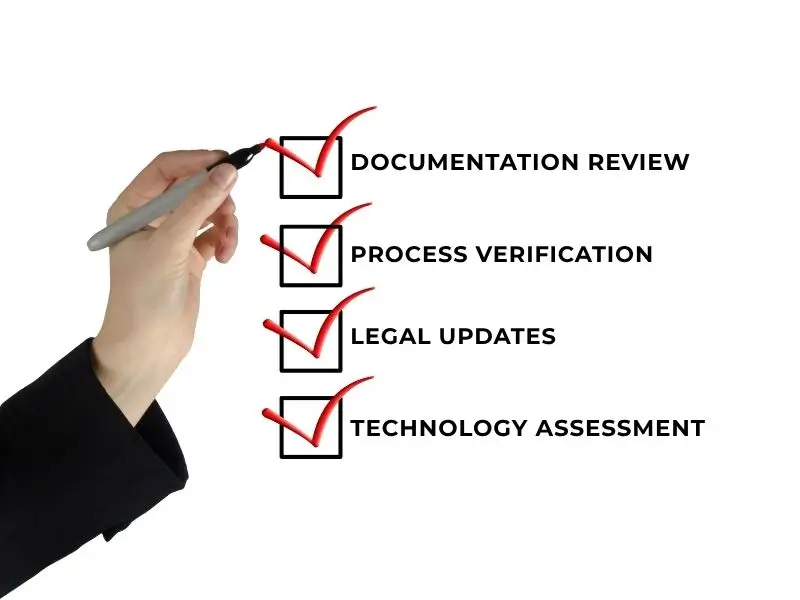.png)
Not only is tenant screening without compliance dangerous, it's a ticking time bomb. Over the past ten years, the number of FCRA claims has risen, and settlement payments can easily amount to tens of thousands of dollars. You could lose all you've worked so hard to build if you make a single misstep in your screening procedure.
But here's the reality: navigating tenant screening compliance in 2025 feels like walking through a legal minefield. Between federal mandates, state-specific rules, and constant regulatory updates, even experienced landlords struggle to stay compliant while protecting their properties.
This guide sets a clear path for you to navigate through the confusion. You'll learn exactly what compliance is, why it can't be compromised, and how modern technology can make compliance a competitive advantage rather than a burden you have to overcome.

Before diving into regulations, understand what's at stake. FHA violations can cost first-time offenders over $20,000, with repeated offenses exceeding $100,000. But financial penalties are just the beginning.
Real consequences of compliance failures include:
The good news? Compliance violations are entirely preventable when you understand the rules and implement proper systems.

Fair housing regulations form the foundation of tenant screening compliance. But today's landscape extends far beyond basic anti-discrimination rules.
The Fair Housing Act (FHA) The FHA prohibits discrimination based on seven protected classes:
But compliance means more than avoiding obvious discrimination. Housing providers should not reject applications for past incidents that are unlikely to recur, such as an eviction due to a job loss.
FCRA Requirements for Landlords The Fair Credit Reporting Act governs how you use consumer reporting agency data. Key obligations include:

The adverse action notice requirement catches many landlords off guard.
Here's what you must include:
Pre-Adverse Action (if denying based on screening)
Final Adverse Action Notice
State tenant screening laws add complexity beyond federal requirements.
Recent developments include:
Portable Screening Reports Colorado's laws require landlords to accept these portable tenant screening reports as long as they meet specific criteria.
Similar laws exist in:
Criminal background screening laws vary dramatically:
Source of income protections now exist in over 20 states, preventing discrimination against housing vouchers or government assistance.
The Fair Housing Act applies to decisions made using algorithmic or AI models, and housing providers are liable for discriminatory denials resulting from relying on these products.
Your responsibilities include:
Algorithmic screening bias poses particular risks because discrimination can be subtle and unintentional. Choose screening services that:
Data privacy regulations have teeth. Tenant data security isn't optional—it's legally mandated.
Key requirements:
When you're done using a consumer report, you must securely dispose of the report and any information you gathered from it
HUD guidelines 2025 continue emphasizing individualized assessments. Blanket policies banning anyone with criminal records violate fair housing laws.
Compliant criminal screening requires:
Background screeners can only report non-conviction records for seven years. This includes arrests, warrants, and dismissals.
Credit report authorization must be explicit and separate from general application consent. Get the tenant's permission with a signature to do a financial screening.
Financial screening compliance involves:
Eviction history compliance has evolved significantly. Many data sources, like eviction filings, have clear limitations.
Best practices include:
Screening criteria documentation protects you legally and ensures consistency.
Create written policies covering:
Qualification Standards
Application Procedures
Consistency is your best defense against discrimination claims.
Every applicant should experience:
Anyone involved in tenant selection needs compliance training covering:
Regular refreshers ensure everyone stays current with evolving regulations.
Modern screening platforms should demonstrate:

Use this compliance audit checklist quarterly to ensure ongoing adherence:
Documentation Review
☐ Written screening criteria updated and compliant
☐ All required notices and forms are current
☐ Adverse action letter templates reviewed
☐ Record retention policy followed
☐ Data security measures verified
Process Verification
☐ All staff follow consistent procedures
☐ Proper authorizations obtained before screening
☐ Required notices provided to all applicants
☐ Adverse action procedures were followed correctly
☐ Reasonable accommodations process is working
Legal Updates
☐ Federal regulation changes reviewed
☐ State law updates incorporated
☐ Local ordinance changes addressed
☐ Industry best practices adopted
☐ Legal counsel consulted as needed
Technology Assessment
☐ Screening service compliance verified
☐ Data security measures tested
☐ Algorithm bias monitoring is active
☐ Integration compliance maintained
☐ Vendor certifications are current
1. Informal Screening Running "quick checks" without proper authorization violates FCRA. Every screening requires a permissible purpose and written consent.
2. Blanket Policies Automatic disqualifiers without individual assessment violate fair housing laws. Consider circumstances and relevance.
3. Inconsistent Application Applying different standards to different applicants creates liability. Document and follow your criteria uniformly.
4. Poor Record Keeping Landlords should also keep records of adverse action notices provided to tenants for at least five years
5. Ignoring State Laws Federal compliance alone isn't enough. State and local laws often provide additional tenant rights protection.
Modern screening technology transforms compliance from a burden to an advantage.
The right platform provides:
Automated Compliance Features
Risk Reduction Benefits
Operational Efficiency
Regulations will continue evolving. Stay ahead by:
1. Building Flexibility Create systems that adapt to regulatory changes without complete overhauls.
2. Partnering Wisely Choose screening providers committed to ongoing compliance and legal updates.
3. Investing in Education Regular training prevents costly mistakes and keeps your team confident.
4. Monitoring Trends Watch for proposed legislation and enforcement patterns in your area.
5. Seeking Expert Guidance Consult legal counsel for complex situations or major policy changes.
Compliance doesn't have to be complicated. Rent With Clara turns complex regulations into simple, automated processes that protect your business while speeding up tenant selection.
Our platform delivers instant, comprehensive reports that exceed all compliance requirements. With 1,000+ data points analyzed and 12,000+ government IDs supported through biometric authentication, we provide the industry's most thorough and compliant screening available.
What sets us apart?
Complete FCRA compliance is built into every interaction. Automatic notices, proper authorizations, and secure data handling happen seamlessly in the background. You focus on selecting great tenants while we handle the compliance complexity.
Best of all, Rent With Clara remains completely free for landlords and agents. No subscriptions, no hidden fees, no compliance headaches. Just transparent, fair screening that protects your properties and respects tenant rights.
Ready to make compliance your competitive advantage?
Experience how Rent With Clara transforms regulatory requirements into streamlined success.